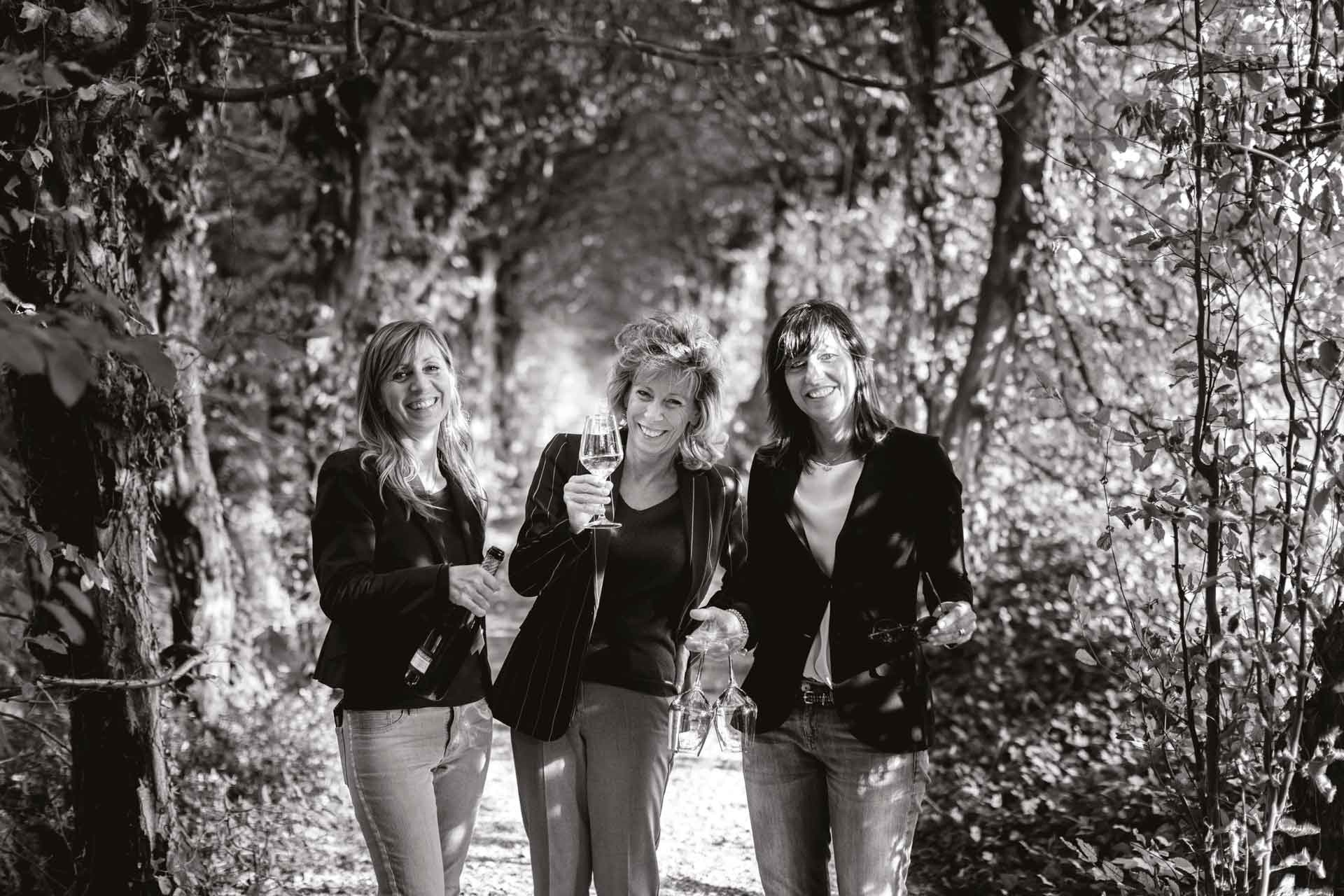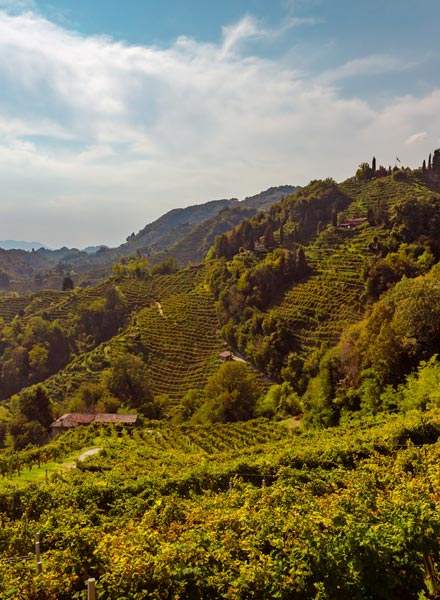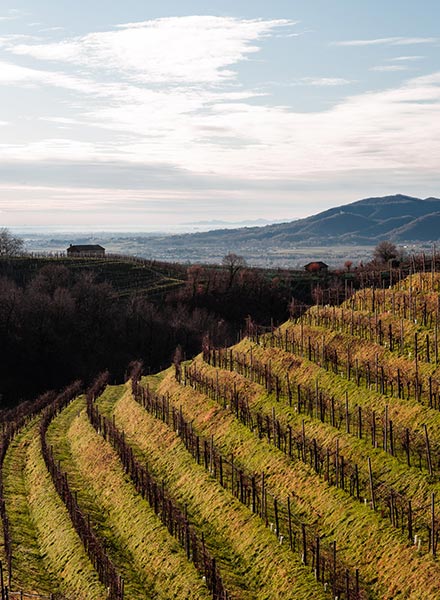NV Bortolomiol Prior Valdobbiadene Prosecco Superiore Brut
This is a dry, light and super classic Prosecco from one of the most historic families in the region. Today, the estate is run by 5 women Ottavia and her 4 daughters Maria Elena, Elvira, Luisa and Giuliana.
“We have a female attitude towards the environment, to sustainability, regard for the territory, with the focus on energy saving, reducing waste and rationalizing the use of water.”
Documents from the mid-18th century bear witness to the existence of Bartolomeo Bortolomiol, the forefather that passed down the family name and profession for generations. Throughout his life Bartolomeo cultivated grapevines in the Valdobbiadene hills, passing on to his descendants his love for the land and the desire to get the most out of it. His example reached as far as Giuliano Bortolomiol who always believed in quality and in the future of Prosecco DOC, dedicating his entire life to it.
This is the legacy left by Giuliano to his wife Ottavia and their daughters Maria Elena, Elvira, Luisa and Giuliana, who with a “natural” instinct have not only maintained what their father built up but have also taken on new challenges to ensure the revolution does not come to an end. Bortolomiol is a strong and tight-knit family made up entirely of women: the mother, the soul and linchpin of this company, and the sisters, the beating heart, who guide and support the family business in the continual challenges to achieve quality, efficiency and effectiveness with an outlook that is always competitive.
“A female attitude to the environment, to sustainability, regard for the territory, with the focus on energy saving, reducing waste and rationalizing the use of water. A proud but also constructive way of saying the world of wine is changing and this revolution is pink. Creativity, regeneration and environmental and social rehabilitation are the choices that we make and pursue today because the territory is our most valuable asset. We owe it tender loving care, respect and conservation, preserving it for the future for the benefit of generations to come.”
Related Items
-
2023 Scribe Carneros Pinot Noir
$55.00Scribe, a pioneer of terroir-driven winemaking in Sonoma, makes one of our all-time favorite Pinots. Invite a few close friends over for an intimate dinner, light some candles, play some jazz and serve wild mushroom risotto topped with fish, chicken or as is! This Pinot will go with it all.
Organic farming practices, hand-harvested, native yeast fermentation (30% whole cluster), and aged 7 months in neutral oak with minimal intervention.
-
2023 Domaine de la Côte ‘Bloom’s Field’ Pinot Noir
$120.00The highly allocated DDLC wines have finally been released!
More than any other vineyard, Bloom’s Field embodies the spirit of the Domaine. It’s lush and complex with a velvety texture that will continue to get better as it ages. Only 6 bottles available.
Organic farming practices, native yeast fermentation, whole cluster vinification, 12 months in 30% new french oak barrels & only 647 cases produced.
-
2021 Cavallotto Dolcetto d’Alba ‘Vigna Scot’
$33.00A charming and approachable red from Piedmont, this Dolcetto offers soft tannins and a vibrant balance—an ideal introduction to Italian wine. Medium-structured, it reveals classic notes of blackberry and cherry, with an aromatic floral bouquet and subtle earthy complexity. Enjoy it now or over the next five years with everything from pizza and pasta to prosciutto, tartare, and aged cheeses.
Organic farming practices, native yeast fermentation, aged for 6 months in large Slavonian oak and only 677 cases produced.
-
2023 Punta Crena Vermentino Riviera Ligure di Ponente ‘Vigneto Isasco’62
$35.00For over 5 centuries, the Ruffino family has nurtured these vines that cling to the cliffs above the Ligurian Sea. Nicknamed “The Yachtsman’s White,” Vermentino is beloved for its breezy salinity, citrus lift, and mouthwatering freshness. It’s a vivid expression of the Riviera—sun-soaked, sea-sprayed, and utterly transportive.
Organic farming practices, hand-harvested, family-owned and less than 2,000 cases produced annually.









